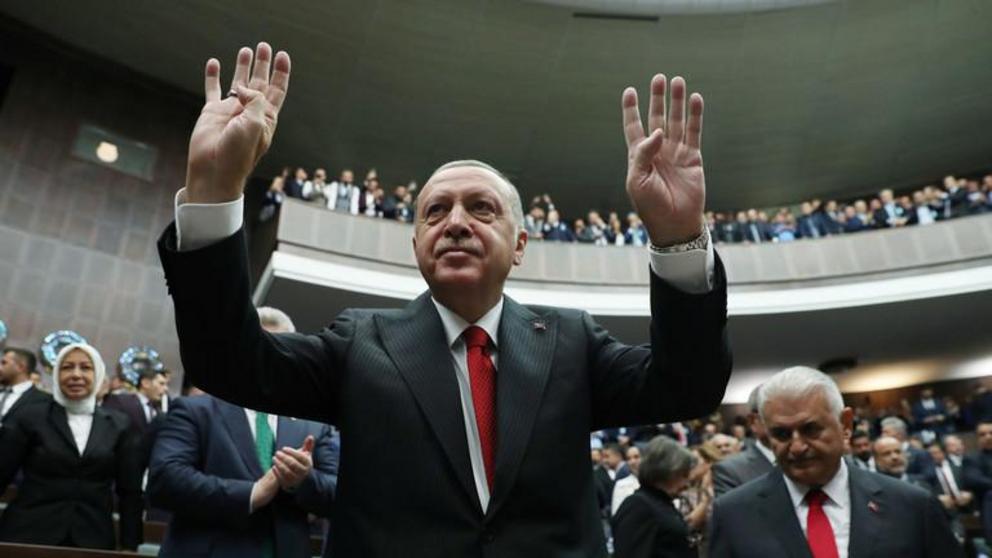Turkey's threat to send troops into Libya has all sides sitting up and asking: Is this a bluff?
Showing an uncanny ability to attract the attention of all world powers with one statement, President Erdogan says a controversial new maritime deal with Libya could see Turkish troops, if requested, on the streets of Tripoli.
Initially the deal signed between Turkey and Libya over the exploration of maritime resources seemed pretty straightforward, until President Recep Tayyip Erdogan told students in Ankara that the agreement meant Ankara was free to send troops into Tripoli if requested.
Then all hell broke loose.
Because, until that point, Erdogan had what might be called a regional battle on his hands. The maritime boundaries his government had redrawn with Libya transected boundaries already in place in the Mediterranean and currently claimed by Greece and Cyprus. That new map did not stop the Turkish Parliament ratifying the agreement and adjusted boundaries last week. It now puts the EU in an awkward place and could jeopardize its plans for a pipeline to deliver gas from the eastern Mediterranean to Europe.
So far, so tricky.
Then Erdogan upped the stakes.“If Libya were to make a request, we would send a sufficient number of troops,” he said. “After the signing of the security agreement, there is no hurdle.”
In saying this, the Turkish President has clearly aligned himself with the UN-backed GNA government of Libya, based in Tripoli. The official government draws its support from the US, the UK and the EU.
Erdogan went even further, to insult General Khalifa Haftar, the military strongman who leads the self-styled Libyan National Army in the east of the country, which is aligned with the Libyan Parliament.
Haftar’s allies include Turkey’s regional rivals, Saudi Arabia, the United Arab Emirates, Egypt and, importantly, Russia. The president told his audience that General Haftar had no “international identity.”
“[Tripoli-based government leader Fayez] Sarraj is the one who is recognized, and he is the one we considered as our interlocutor,” he said.
Ouch!
So in a single outing, President Erdogan has infuriated the EU on the one hand, because he’s ignored the sensitivities of exploration in the Aegean Sea, yet at the same time he has bolstered the EU-supported government in Libya.
Simultaneously, he will have angered Moscow and its allies by dissing their ‘Guy in Libya’ in favour of the UN crowd. Russia will be checking its diary to confirm that, yes, it was just a couple of months ago that they were fighting alongside Turkey in the hideous Syrian mess.
The irony of Erdogan stirring things up in the region is that the threat of Turkish troops in Tripoli rests on the maritime deal signed with Turkey being agreed on both sides. And, while Ankara okayed it, the Haftar-aligned Libyan Parliament will do no such thing.
So why stir things up?
For one, it shows how easy Erdogan finds it to turn regional tensions from simmer to full boil without trying too hard. It also attracts the attention of world powers to a regional issue about oil exploration that would otherwise be of no concern to them.
And it transforms President Erdogan into a major player.
Now, when the EU foreign ministers gather to mull over the next steps, they have to work out whether this is all a bluff until Ankara gets what it wants or will it follow through with its veiled threat to intervene in Libya?.
You can bet Washington and Moscow are reaching for their phones right now.
The statements, views and opinions expressed in this column are solely those of the author and do not necessarily represent those of RT.

